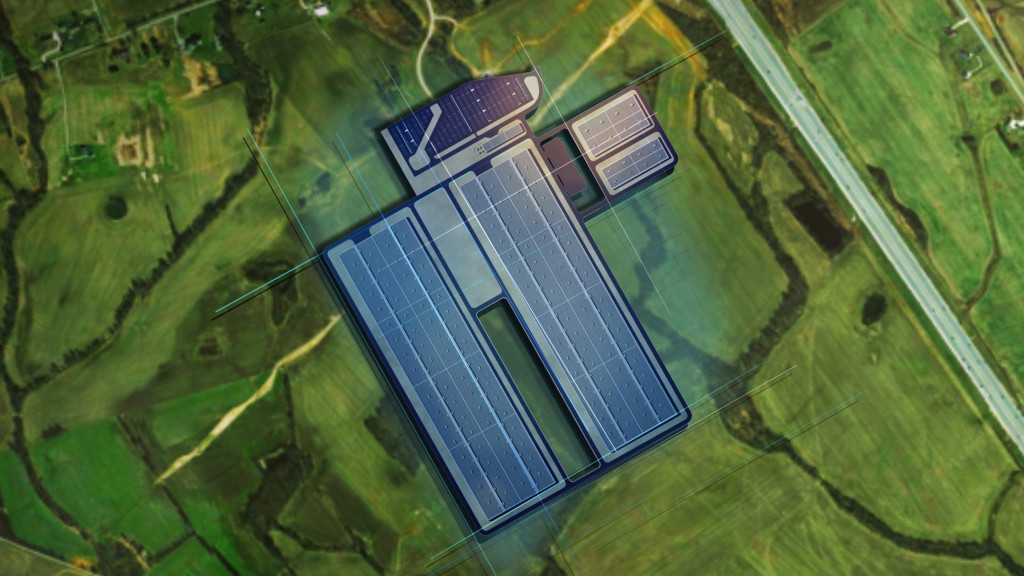Ford is delaying production at one of two EV battery plants located on a common site in Kentucky, the Louisville Courier Journal reports.
Citing lower-than-expected demand for EVs, Ford will continue production of the two plants comprising the BlueOval SK Battery Park, a joint venture with battery supplier SK On in the state that’s being financed with part of a $9.2 billion government loan. But one plant’s opening has been put on hold.
The first plant remains on track to open in 2025. The second plant was originally slated to begin production in 2026, but that date is now uncertain.
BlueOvalSK Battery Park – rendering, September 2021
“The first (plant) is full speed ahead,” Ford spokesperson T.R. Reid told the paper. “The transition to EVs is continuing without interruption, but it’s gonna happen a little bit more slowly than we originally anticipated.”
The affected battery plant is on one of two mammoth manufacturing complexes announced in 2021, in Kentucky and Tennessee, part of an $11.4 billion investment by the automaker. The Tennessee site, dubbed Blue Oval City, will include a vehicle assembly plant and supplier park in addition to its own battery park. Ford confirmed to the Courier Journal that the Tennessee plant remains on schedule to begin production in 2025.
Ford in 2021 said that the Blue Oval City plant and twin Battery Park plants will allow a combined annual capacity of 129 gigawatt-hours of battery production for next-generation EVs. That includes a new electric pickup truck, to be assembled at the Blue Oval City complex, that Ford has said targets “incredibly high volume.”

BlueOvalSK Battery Park – rendering, September 2021
CEO Jim Farley has teased this next-generation truck, which unlike the current F-150 Lightning is expected to be built on a dedicated EV platform, as the “Millennium Falcon of Trucks.” He’s also confident it will allow Ford to retain current truck customers in the face of the Tesla Cybertruck, which Farley previously said was “for Silicon Valley people.”
The pickup is part of a generation of EVs being “radically simplified” to use smaller batteries and be more efficient, Ford claims.
Read the full article here



